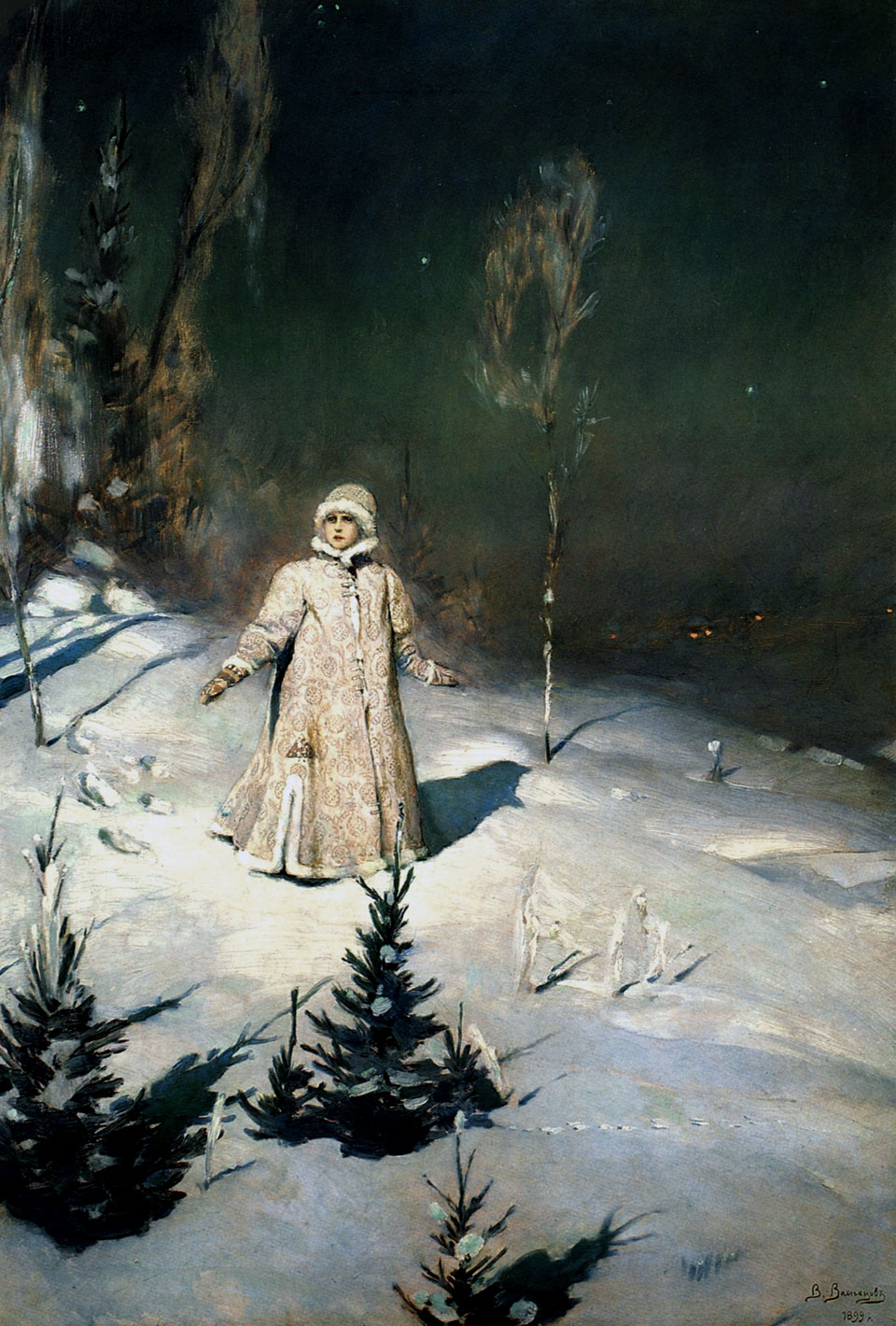Makosh (Mokosh, Makusha)
Makosh is a goddess of destiny. But it was not a destiny in a modern understanding of the word. The historian of 6 centuries named Procopius wrote about Slavs: "They do not know destiny and do not recognise that the destiny influences people”. The destiny for Slavs was something like good luck, a fortune and a chain of casual events. Slavic destiny never turned to fate.
Slavs thought that Makosh spins destiny, and therefore represented her as the antropomorphic being behind a weaving loom. There were horns on her head, so to honour her, women wore a headdress that represented horns.
One of the most important gifts of destiny for the ancient people was being provided with enough foodstuffs. Therefore Makosh as the goddess of destiny is the goddess of fertility as well. Fertility provided a good harvest which could support people. As the goddess of fertility Makosh was represented with a horn of plenty in a hand.
Some scientists believe that the the link between Makosh and fertility was shown also in the identification of her with the Earth. According to this version the name Makosh occurred from mokr- (wet) which is the characteristic of the fertile earth. However according to the other version the word Makosh has occurred from two words: ma- (Mother), and kosh (lot, fate). According to this theory it turns out that the name Makosh is translated as Mother Destiny
Makosh was especially esteemed by married women. Giving rise to children, they showed their natural quality – fertility, so they likened to Makosh. Sitting by a weaving loom decorated with solar symbolics, women with the help of Makosh weaved such things which could help to bring good luck and gifts of destiny to those who carried them.
B. Rybakov. The Ancient Slavic Paganism. 1984.
L. Niederle. Slavic antiquities. 1934.
A. Afanasyev. About the Meaning of Rod and Rojanicy. 1869.


No comments:
Post a Comment